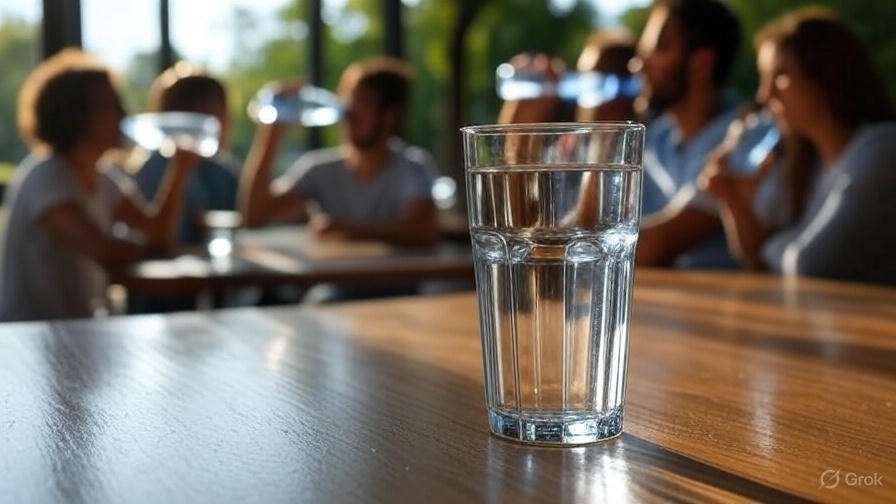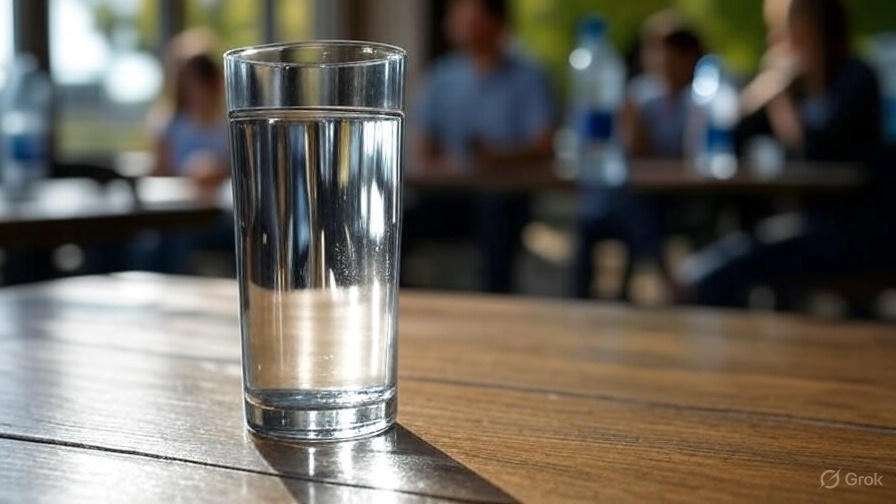Drinking enough water may sound like the simplest health habit in the world, yet many of us underestimate its power. In North Carolina, New York, Dhaka, or anywhere around the globe, doctors and nutritionists continue to stress one timeless reminder: hydration matters.

From boosting energy to protecting your heart, water is far more than just a thirst-quencher—it is the very foundation of our health.
The Silent Power of Drinking Enough Water
In a society where coffee, sodas, and energy drinks often dominate our routines, plain water is quietly overlooked. But experts say drinking enough water daily is one of the cheapest and most effective ways to improve overall well-being.
The Centers for Disease Control and Prevention (CDC) notes that staying hydrated improves mood, mental alertness, and body temperature regulation.
“Most people don’t realize they’re mildly dehydrated until symptoms hit—headaches, fatigue, or irritability,” said Dr. Susan Martinez, a dietitian interviewed in Raleigh. “Drinking enough water consistently can prevent these issues before they begin.”
How Drinking Enough Water Impacts Daily Health
Hydration and Energy
Skipping water can lead to mid-day slumps. Research shows that dehydration reduces physical endurance and mental clarity. A hydrated body delivers oxygen and nutrients more efficiently.
Skin and Beauty Benefits
Dermatologists often remind patients that drinking enough water keeps skin supple. While it’s not a miracle cure for aging, hydration supports elasticity and reduces dullness.
Digestive and Metabolic Health
Water aids digestion, prevents constipation, and helps absorb essential nutrients. For those seeking weight loss, water before meals can reduce calorie intake and improve metabolism.
Heart and Kidney Support
Consistent hydration helps regulate blood pressure and reduces strain on the kidneys. Doctors link proper hydration to lower risk of kidney stones and urinary tract infections.
Common Mistakes People Make About Drinking Enough Water
Despite clear benefits, many fall into myths:
- “Other drinks count the same as water.” While juices and teas provide fluids, sugary and caffeinated drinks may dehydrate more than they hydrate.
- “I’ll drink only when I’m thirsty.” Thirst signals dehydration already; waiting can lead to fatigue or dizziness.
- “Eight glasses are enough for everyone.” Needs vary. Athletes, outdoor workers, or hot climate residents require more.
Local Stories: Why Drinking Enough Water Changed Lives
In coastal Wilmington, a high school coach told our reporters that he insists players carry water bottles at practice. “Last year, one student collapsed from dehydration. Now, I make hydration as mandatory as stretching.”
Meanwhile, a 42-year-old office worker in New Jersey shared that replacing sodas with water improved her energy levels and helped her shed 10 pounds in three months.
Drinking Enough Water: The Global Perspective
Worldwide, billions still lack safe drinking water. While we discuss daily intake goals, many families walk miles just for a few liters. Organizations like UNICEF remind us that access to clean water is not only a health tip—it’s a human right.
How Much Water Should You Drink?
Most experts recommend 2–3 liters daily for adults, depending on climate, activity, and body weight. Signs of good hydration include pale yellow urine, steady energy, and fewer headaches.
For guidance, see our own resource: Why Drinking Enough Water Might Be Your Best Health Decision (internal link).
Conclusion: The Simplest Health Investment
At a time when expensive supplements and diets dominate the wellness industry, drinking enough water remains the simplest, most cost-effective, and most overlooked health decision. Whether you are a student, athlete, or working parent, staying hydrated can transform energy, focus, and overall quality of life.
So, next time you reach for coffee or soda, pause—and remember the quiet strength of a glass of water.




